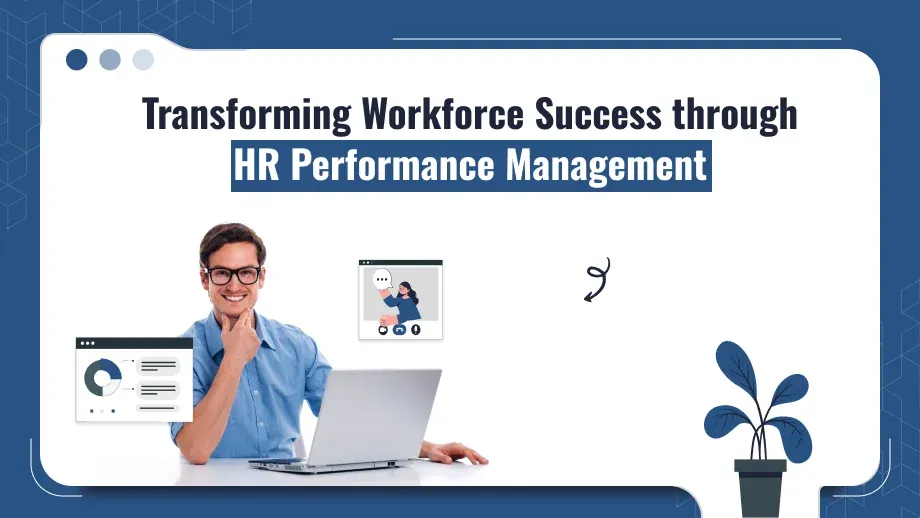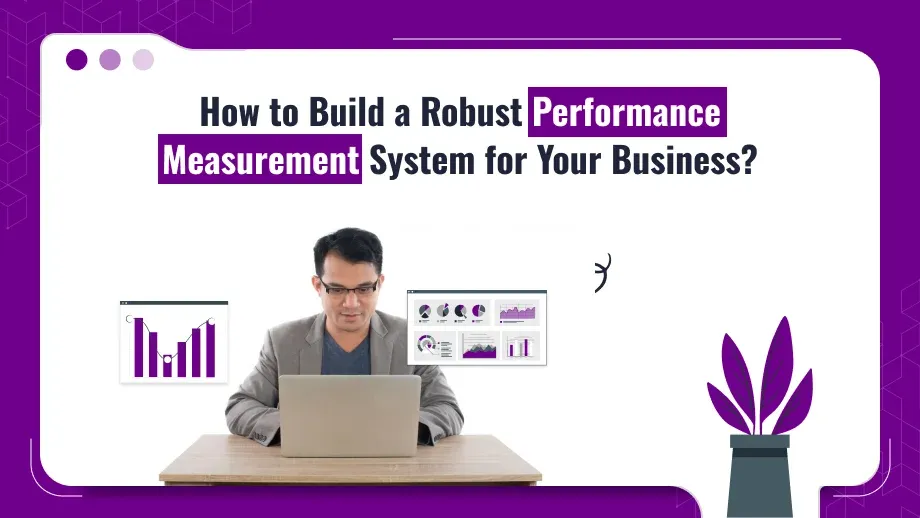
In today’s constantly changing business environment HR performance management system of any firm will be influenced by the efforts of the employees. A well-functioning HR system specifically designed to help manage performances plays a crucial role in enhancing the effectiveness of employees. It ensures that their objectives are in line to the objectives of the company to establish an organizational culture that is constantly evolving. This article will focus on the importance of managing your performance as well as the importance of HR specialists, key components of an effective program to manage the performance of employees and the guidelines that make certain of the effectiveness of the implementation.
What is HR Performance Management?
HR performance management is an ongoing process of checking and increasing the performance of employees in an organization. It covers a variety of activities that involve defining the requirements for the performance of employees, as well as performing assessments frequently, giving feedback and establishing strategies for improving. An effective performance management system ensures that employees know the role they have and the responsibilities they have and responsibilities, which enable employees to play a role in the in the overall success of the whole organization.
Importance of HR Performance Management
- Affiliating Goals
HR Performance management can be described as a method of coordinating individual employees’ objectives to the overall goals of the entire organization. It makes sure that every worker is aware of the ways in which their actions can contribute to the overall success of the company. For instance, if your company’s goal is to increase number of sales by 20%. The performance management system has to set exact, quantifiable targets each salesperson to be able to achieve this goal.
- Continuous Feedback
An effective performance management system provides continuous feedback, and allows employees to adapt their activities and make changes during the course of the year rather than relying on annual assessments. This approach encourages open communication and makes employees feel secure as they move forward through their career.
- Employee Development
Management of performance does not just serve as a tool for evaluating performance It’s a useful method to support the development of employees. Through regular testing and offering feedback to employees, they are able to identify their strengths, as well as opportunities for improvement. This creates an environment that promotes an environment that fosters a culture that encourages learning and development. For instance, a person could realize that they have to enhance their presentation skills of employees. This prompts them to seek out instruction on this subject.
- Increased Accountability
If they realize that their work is examined, they’re likely to take note of their actions and be accountable and improve their efficiency and also motivation. When employees feel held accountable for their actions They create a culture which creates an environment that fosters a culture that is committed and accountable.
- Enhanced Retention
Organizations that are focused on performance management will likely have more retention rates for their employees. When employees feel encouraged to continue their progress and are capable of finding possibilities to advance within their organization, and feel encouraged to progress in their careers, they’re more likely stay loyal to their employer. Businesses that invest into growth strategies for their employees and who recognize the efforts of its workers is more likely to have an inspiring work environment that inspires employees to keep working.
Unlock your team’s full potential with a comprehensive HR performance management solution.
Start optimizing your workforce for success today!
The Role of HR Professionals in Performance Management
HR professionals play a vital part in the establishment and maintenance of a successful performance management system. Their duties include:
- Developing Performance Management Policies
HR specialists create clear policies and processes for managing employee performance to ensure that employees know what is expected and the procedures involved. An established policy can set the tone for uniformity and fair evaluations.
- Training Managers and Employees
For a successful implementation of an effective performance management program, HR professionals must train workers and managers in the most effective methods, tools and methods to conduct performance assessments and giving constructive feedback. Online training, workshops as well as role-playing exercises could be very effective for the education.
- Facilitating Goal Setting
HR specialists assist with the process of setting goals and assist workers and managers establish quantifiable and attainable goals for performance that are aligned with goals of the organization. They can, for instance, offer templates to set the SMART objectives, making sure that all employees are at the same level.
- Monitoring and Evaluating Performance
HR employees are responsible of overseeing the process of managing performance as well as ensuring that performance reviews are performed with fairness and in a uniform way within the company. They analyze information on the performance of employees to identify patterns and areas that are which require improvement..
- Providing Support and Resources
HR professionals provide continuous help to employees. They provide the tools for personal development as well as dealing with any issues concerning managing performance. They may implement mentorship initiatives or coaching that assist employees with their development.
Key Components of an Effective HR Performance Management System
- Clear Performance Metrics
A successful performance management program needs clearly defined performance indicators that align with company objectives. They should be specific that are measurable, practical as well as relevant as well as time bound (SMART). In other words instead of stating “increase sales,” a reasonable goal for SMART is “increase sales by 15% in the next quarter.”
- Regular Performance Reviews
Regularly reviewing performance-related reviews, whether it’s monthly, semi-annually, or annually–allows companies to evaluate their employees’ performance in a consistent manner and to identify the areas that need improvements. Regularly reviewed reviews can make sure that the management of performance is an ongoing procedure instead of a one-time event.
- Continuous Feedback Mechanism
The establishment of an culture that encourages continuous feedback fosters the openness of communication between employees and managers. regular check-ins, as well as informal feedback sessions could significantly improve employee performance. As an example, supervisors could organize monthly meetings with one on one for discussion of performance and addressing any concerns.
- Employee Development Plans
Effective performance management is one that includes individual plans for development detailing the capabilities and abilities employees require to improve their performance as well as advance their career. They should be adapted to meet the needs of each individual’s objectives and ambitions, which will help them advance within the workplace.
- Use of Technology
Implementing a performance management HR software will streamline the review procedure, making it much easier to keep track of performance-related measures, keep feedback in a safe place, and track evaluations of performance. The technology also allows for employees to self-assess and provide 360-degree feedback. This makes this process much more effective.
Best Practices for Implementing an HR Performance Management System
- Involve Employees in the Process
Participate to participate in the process of managing performance through asking for their opinions in the setting of goals and assessment criteria. Participation in the process creates a sense of belonging and commitment to the performance results. In this way, for instance, employers may conduct surveys to collect employees’ feedback regarding their preferred results.
- Focus on Development, Not Just Evaluation
The focus of management of performance from monitoring employee performance, to helping them develop. This encourages growth mentality and improves engagement of employees. Businesses can make available resources for learning and development which are in line with the interests of employees.
- Train Managers on Effective Feedback Techniques
Make sure that the managers have the knowledge and skills needed to provide constructive feedback. Programs for training can assist them to know how to communicate effectively, set expectations, and encourage employee growth. In particular, managers could discover methods for giving feedback in a manner which is honest as well as stimulating.
- Leverage Data for Decision Making
Use the data and analysis from your management systems for performance to spot trends, take educated decisions and design specifically designed interventions to help employees achieve improvements. The analysis of performance data helps organizations determine high-performing groups and other areas that might require more resources.
- Regularly Review and Adjust the System
Regularly review your system for managing performance to make sure it is efficient and relevant. Get feedback from your the managers and employees to determine ways to improve. In this way, employers could conduct annual reviews of their monitoring of performance in order to determine its effect on employee satisfaction and work productivity.
Performance Appraisal: A Vital Element of Performance Management
Performance appraisal is an key part of the process for managing performance that involves the continuous evaluation of performance by employees against set guidelines. It gives employees to review their contributions as well as to recognize their achievements and consider areas to improve.
Types of Performance Appraisals
- Traditional Performance Appraisal
This method is based on periodic reviews, either biannual or annual, which allow managers to evaluate the performance of employees according to specific standards. While this technique can offer useful information, it does not be able to capture the ongoing trends in performance.
- 360-Degree Feedback
The method collects feedback from various sources, like colleagues, subordinates, as well as supervisors. 360-degree feedback gives a complete assessment of performance by employees and provides a more complete appraisal. Businesses may find this approach to be particularly effective in encouraging collaboration and teamwork.
- Self-Assessment
Inviting employees to complete self-assessments helps them reflect and become more aware of themselves. The process helps employees discover their strengths as well as potential areas of improvement. Self-assessments may result in more effective conversations during the performance review.
- Management by Objectives (MBO)
The focus of this approach is on the setting of specific goals to employees and measuring their performances based on their achievement of these objectives. MBO facilitates the collaboration of the employees and managers, as well as to ensure alignment with the organizational goals. In the case of the marketing department plans to announce a new marketing campaign the MBO procedure would set clearly defined goals for all team members involved.
Challenges in HR Performance Management
When implementing a performance management system can bring many advantages, companies may face issues along the way
- Resistance to Change
Managers and employees may be resistant to the new processes for managing performance. Implementing effective change management techniques which include clear communication and training can in overcoming this resistance. The organization should communicate clearly the advantages of the change to everyone involved.
- Inconsistent Implementation
Uncertainties in the way that the process of performance management is implemented across different departments could cause confusion as well as perceptions of inequity. The standardization of processes and the training of managers could help reduce the risk of this happening. An approach that is consistent ensures everyone is evaluated according to the same standards.
- Data Accuracy and Management
Maintaining up-to date and accurate employees’ data is essential for successful monitoring of performance. The organization must put the importance of accuracy on data and create procedures for managing data. Regular checks of employee data are a great way to spot and fix mistakes.
- Balancing Quantitative and Qualitative Metrics
The right equilibrium between quantitative measures (e.g. sales figures) as well as qualitative evaluations (e.g. and collaboration) isn’t easy. An integrated approach that takes into account all kinds of measurements is vital for accurate evaluations of performance. Companies should identify key metrics for performance that encompass both the behavioral and numerical aspects of the performance.
Conclusion
A well-designed HR performance management program is crucial to ensuring the engagement of employees, their productivity as well as organizational performance. Through aligning the individual’s goals with the goals of the organization, offering continuous feedback, and encouraging an environment of development, culture that encourages development HR professionals are able to create an employee workforce inspired and encouraged to attain high standards.
Insuring a solid performance management strategy does more than improve the employee’s satisfaction and retention, as well as contributes to the overall efficiency of the company. While the world of business is constantly changing, companies should consider performance management an essential element of their HR strategies.






